bantayan island and the single man
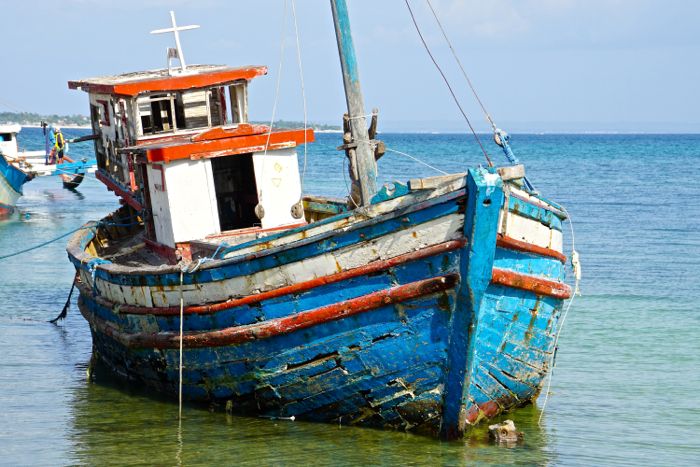
i accepted an invitation from complete strangers to join them at their table while they sang songs at a videoke bar in the mercado of the town of santa fe in bantayan island, cebu. the bar was along batobalonos street, which has a strip of restaurants that catered mainly to bantayan's foreign visitors, and was located close to the island's white sand beaches. at a little past midnight, the local police officers arrived to remind everyone of a municipal ordinance that forbade the playing of loud music after 11pm. they were already being considerate and generous, although i complained that such an ordinance killed the joy of tourists.
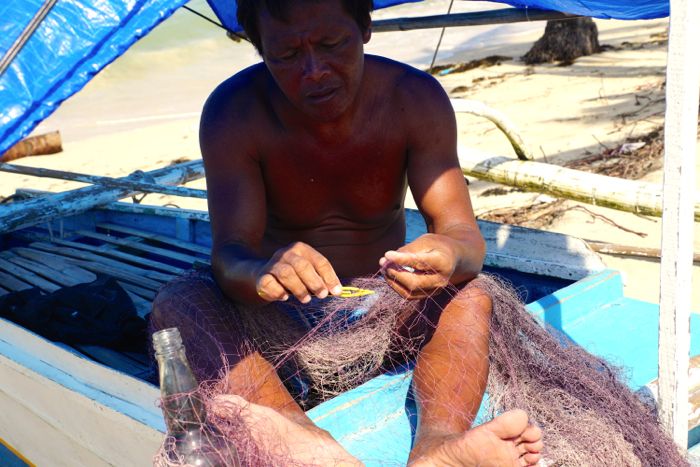
i came to bantayan island with no definite plans. i just wanted to be somewhere else during the chinese new year holidays, somewhere i had never been, and bantayan seemed like a nice idea. cebu is more accessible now than most places in luzon, and i had plenty of options in case my plans panned out. not that i had a definite plan. i actually just wanted to go there and decide what to do once i arrived. that is the relative advantage of traveling alone. for the most part, i just stayed in the same places, eating lots of fresh seafood, reading a book, watching rural life unfold before my tired, urban eyes.
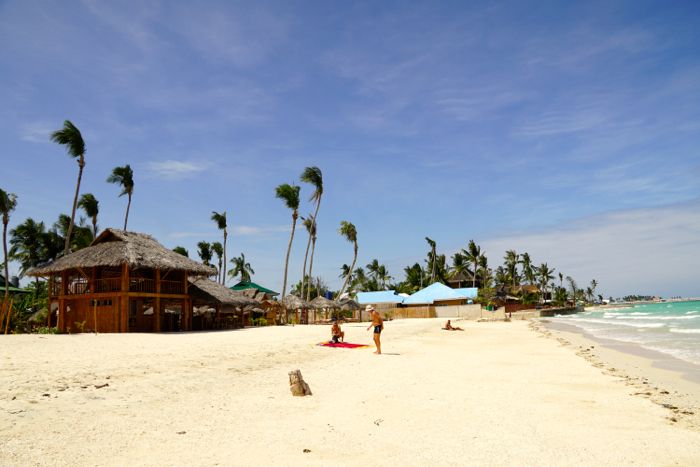
as restaurants nearby started to put their lights out, visitors still longing to extend the evening transferred to the videoke bar where muted music was still playing. a guy from new zealand introduced himself and his girlfriend to us. he teaches english in beijing, she is a nurse at a local hospital. he visits as often as he can, he says. he asked a few questions, and after i answered some of them, he then inquired where i was educated. the next conversation is usual of what i hear when i travel alone abroad: my english always sparks curiosity and interest, probably because it sounds different from what's spoken by many filipinos, and also because it's possibly not what you'd expect a filipino to sound like. so i've had to field questions about whether i've studied in the US, or take in surprise about the fact i'm filipino and not canadian nor american with cheerful refusal instead of derision.
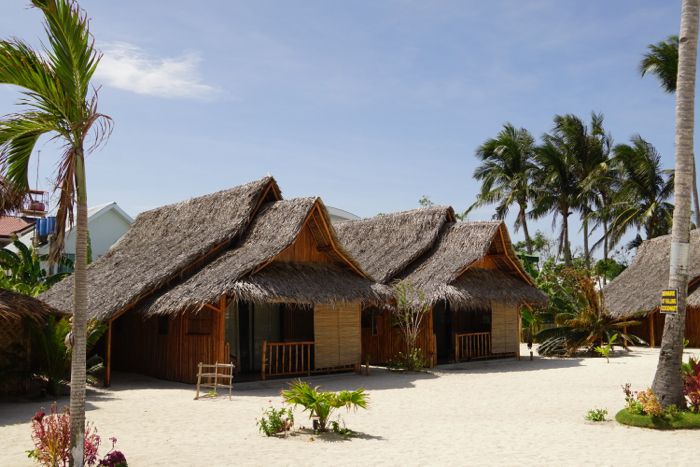
but it was the exchange that came after we had settled the matter of my "excellent" english that had me raising my defensive flags. the kiwi told me i was lucky to have studied law. i replied by saying it had nothing to do with luck; i worked hard to finish school, worked even harder to stay in school, for the grades that allowed me to win scholarships and for the part-time work that permitted me to study while putting in my hours. i explained that if i had surrendered everything to chance, i would not be where i am today. my life's direction, i said, is going generally along the route i had hoped it would. at this point, the bantayanons around the table were putting their fingers into their noses, complaining of imaginary nosebleeds, but i soldiered on, saying that if i accepted my fate as it unfolded, then my destiny would have been very different. we choose where we want to be, and decide our future.
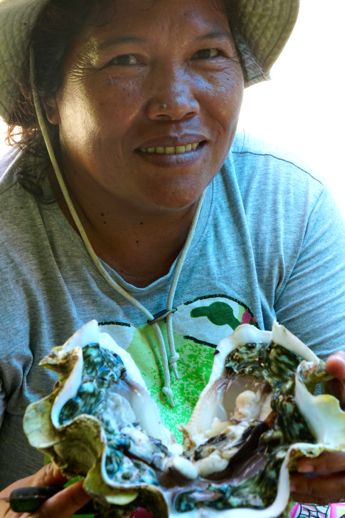
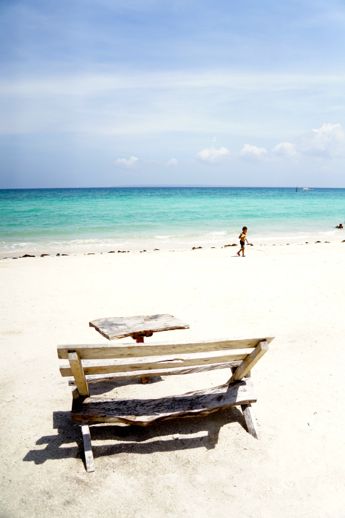
i ended by saying that i have accepted my relative advantage over other filipinos and consider it my good fortune that i have this stellar resumé that can get me a well-paying job. i didn't complain about the costs of being in bantayan, because i knew that what i paid would help send a young boy to school, buy a little girl some notebooks and a pencil, or allow a mother to come home with dinner after slaving all day in the heat. i am all aware of the ripple effect that my visit potentially has, and i am happy to bring work and income to people. eventually, the new zealander stood up, shook my hand and said this country needs more people like me.
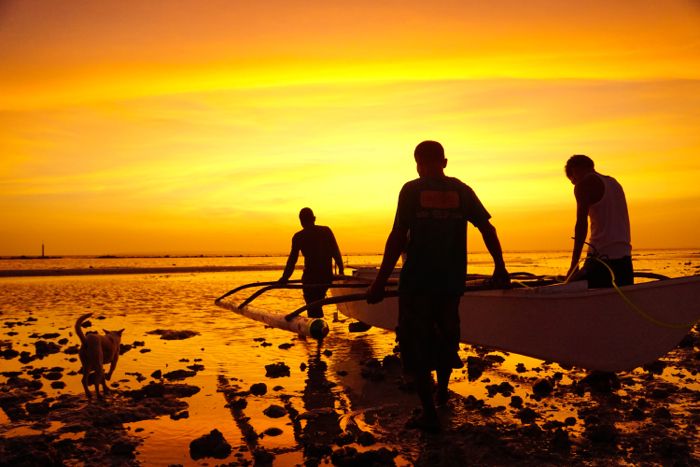
but my self-congratulatory rant ignored a few things about life. even if i were as smart as i had the kiwi believe, things would still have been different if i hadn't been exposed to certain opportunities. the same opportunities which many people outside of urban centers do not have. the kiwi said something about bantayanons not having anything. this is true not only for the lovely, friendly locals who made me feel welcome, but for many other filipinos who are robbed a better future just because of their location, because of their isolation. although just an hour on placid seas to hagnaya port on the northern tip of cebu, bantayan is still a good 4 hours from the town of san remigio to metropolitan cebu itself. a small island of 3 towns, bantayan has comparatively limited resources and few employment opportunities. in santa fe where i stayed, those who do not work for resorts or restaurants make a living by driving tricycles or pedicabs, or participate in the less lucrative endeavor that is night fishing.
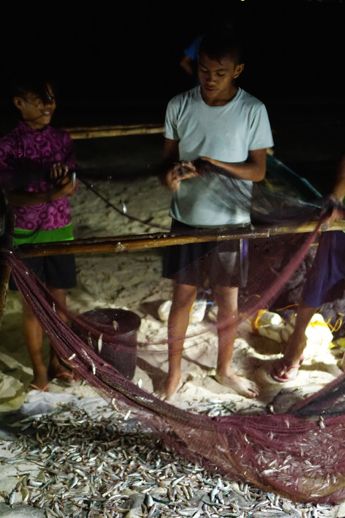
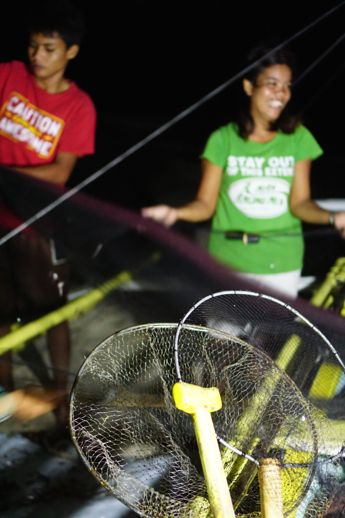
at dusk, fishermen set out to cast their sad nets and trawl for three hours around the waters of hagnaya bay. at 9PM, they return to shore where children, wives, neighbors, cousins are waiting to help carry the small boats to the embankment above the tide, and contribute to untangling the net piled in the middle of the boat. in the process they pull out a variety of fish, mostly small ones like tamban, effectively decapitating many of them. prospectors mill around ready to buy the night's catch at unbelievably low prices, either to take them to the market in bantayan town or to sell them to danggit traders. each of these small boats yield only a few kilos, and the income one fisherman makes seems disproportionately low compared to the time he spends out at sea. i asked whether this was the normal yield, and one fisherman replied that there are good days, and there are bad days, although there has been a steady decline in the volume each one gets, possibly because there are now more fishermen, and bigger boats with better equipment.
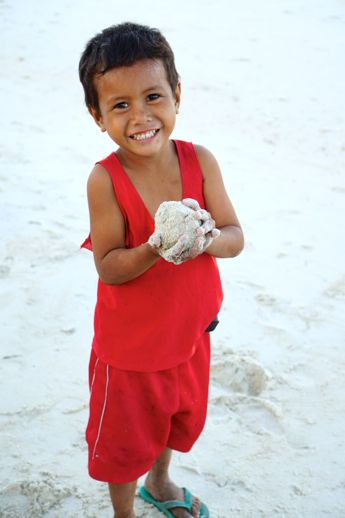
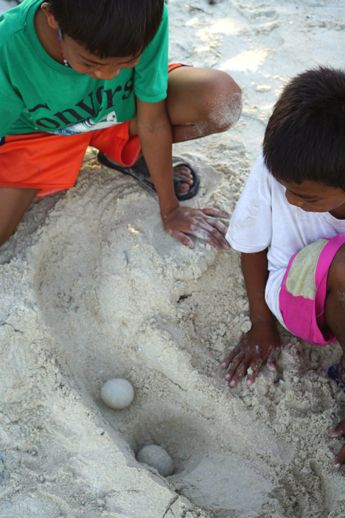
elsewhere on bantayan island, life unravels at the pace of blooming flowers. walking along the beach in the late afternoon sun, i encountered children engaged in play, merrily forming balls out of wet sand, rolling them down slides to duel with other sandballs. the owner of the sandball that breaks apart loses, but no one cares about the number of balls you crush, as they just rush to dig out more sand to roll into balls. nearby, other kids were coaxing spiders out of matchboxes and onto sticks where they battled to the death, a game which i am happy to note has survived decades and remains despite many technological advances. i often wonder whether children are better off being in isolated, far-away locations, where they are able to put whimsy, creativity, and innovation into play, are not limited by battery life or easily bored by having too few applications, where exercise consists of pressing buttons. i more or less grew up in that kind of an environment, and i can't help but worry about this generation's helplessly short attention spans.
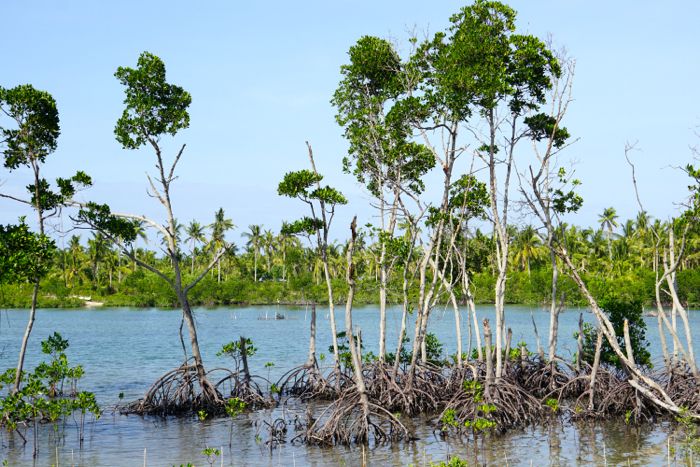
at one point, after finishing a chapter of the book i was gingerly reading, i suddenly decided i wanted to tour the entire island, so i asked someone if i could rent a scooter for the day. i had done something similarly stupid before, when i lied my way in order to borrow a motorcycle that took me around the main island of batanes. i was more prudent this time and insisted that i be leased an automatic scooter, which was delivered to me at lunchtime while i poked around a bowl filled with the sliced insides of a giant clam swimming in a mix of vinegar, calamansi, and onions. and still i had to ask the teenager who tended to the lechon manok to give me a refresher. shortly afterwards, i was rolling on bantayan's interior barangay roads which had few other vehicles, wondering where my curiosity would bring me.
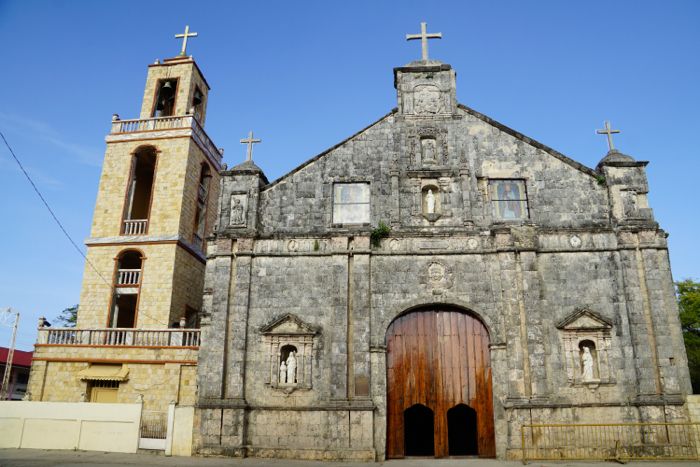
with 2 liters of gas in the tank, i drove along bumpy unpaved roads that rolled past mangroves, obscure resorts, and the disused, decrepit baigard wharf with its ghostly abandoned ship, and the remains of a few boats left to rot in the water. when i ran out of empty streets, i braved the main road that linked all 3 towns and rode past the airstrip where you could skydive for PHP 18,000, and on to the more progressive town of bantayan where i circled the public plaza several times to look at heritage homes and the old sts. peter and paul parish. i parked my scooter and walked around the market beside the municipal wharf, satisfying my curiosity by asking questions to vendors who were kind enough to provide me with answers although it didn't seem like i was going to buy anything.
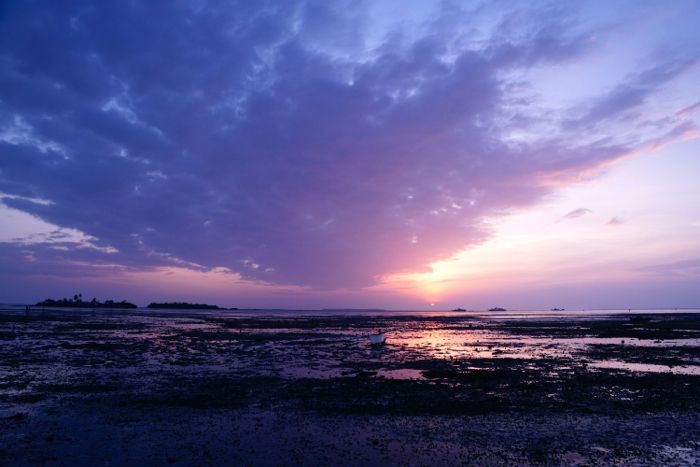
from there, i pushed on towards madridejos where i listened to a marching band practice at the town plaza, watched teenagers who have graduated from spiders and sandballs to skateboards, then pushed my scooter to its limits on my way back to bantayan town, hitting 60KPH at some point to chase the last few moments of the sunset. the sky turned purple briefly. i was hunched on the edge of the exposed reef beside the wharf when an old woman called me to ask what i was doing there. by the time i was on my way back to sta. fe, night had already fallen, and all i could think of was: what will i eat tonight? all in all, i scootered over 80 kilometers in just half a day, and in the process, saw most of bantayan in ways only the locals possibly could.
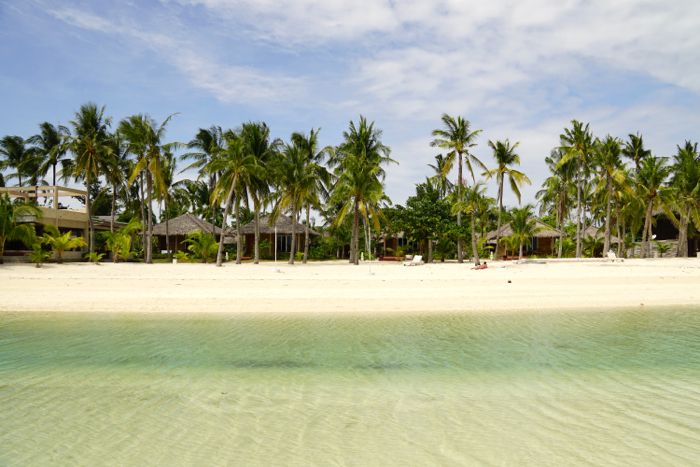
some people have described bantayan as boracay many years ago. that's possibly a stretch, in the sense that the white beach on bantayan is not 4 kilometers long. but bantayan's charms aren't measured in the length of its beaches, nor whether the sand is as fine as sugar as brochures claim. in fact, bantayan should not aim to become another boracay, nor should one come to bantayan burdened by this comparison. the weight of expectations will wear you down. i came to bantayan island having no plans, and yet i feel that my trip was exceedingly rich, overwhelmingly filled. i am grateful to the serendipity of bantayan island for giving me insight, for handing me experience, and for teaching me that beneath the beautiful beaches and magnificent sunrises, the manicured roads and the bountiful harvests, sometimes, the real attraction is not the place, but the people who let you see the world differently, and who, through no fault of their own, enrich your life in more ways than you can imagine.